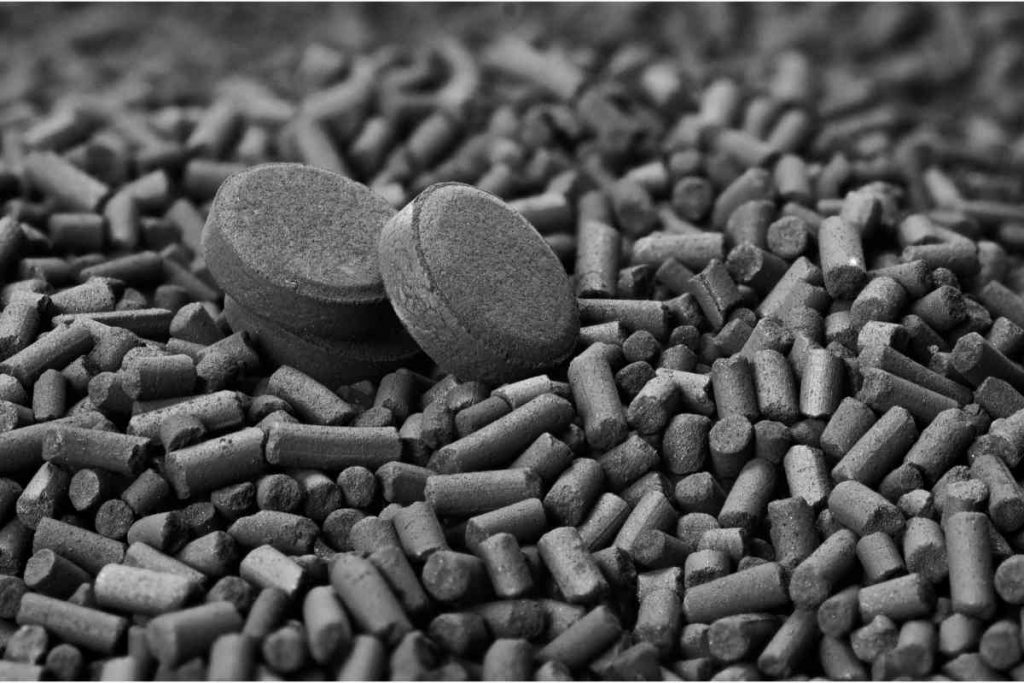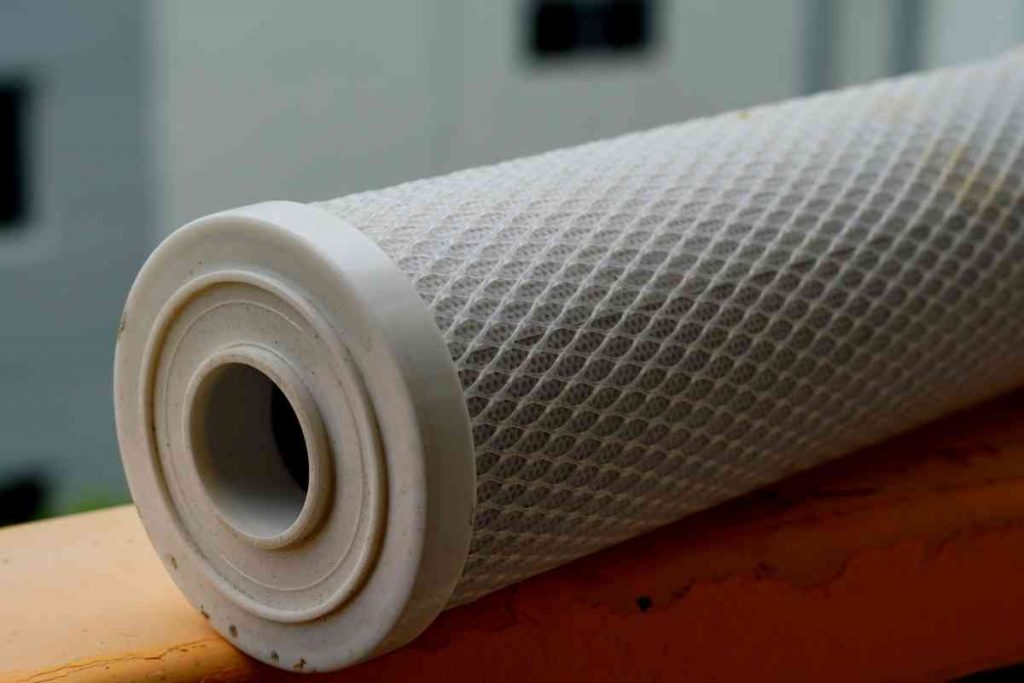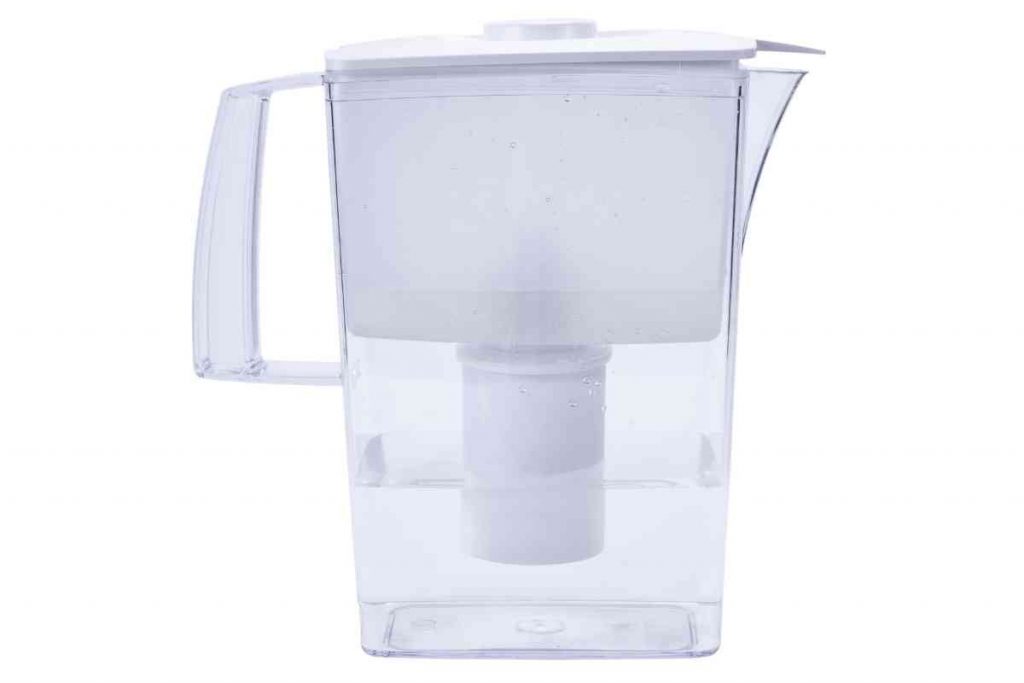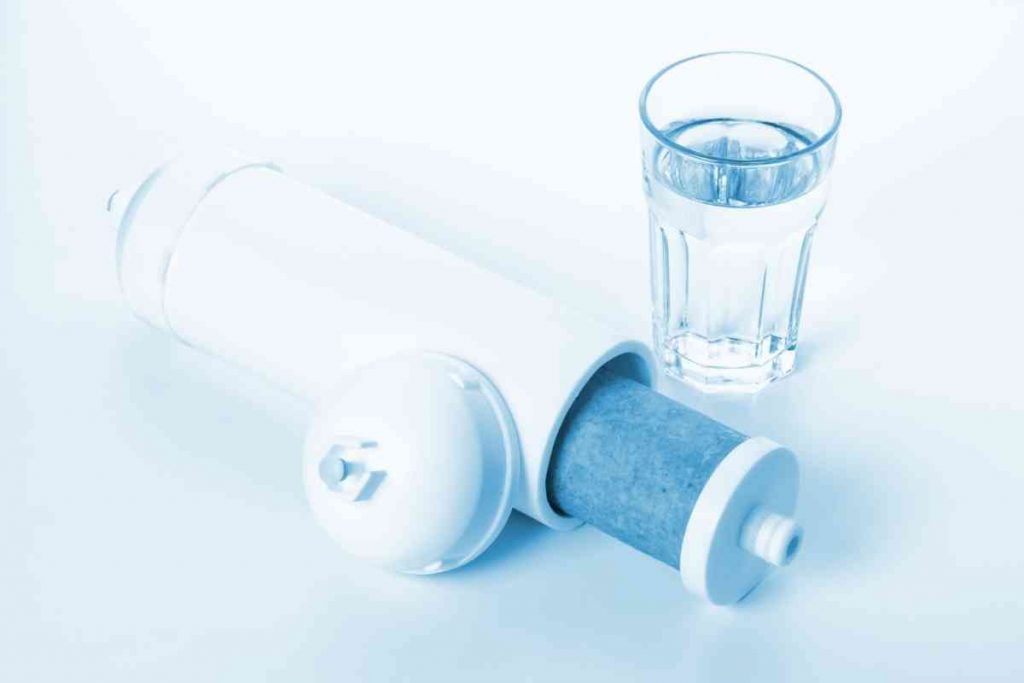In this guide, we researched and reviewed Brita’s activated carbon filters, which the company designed to be used with their water pitchers, dispensers, bottles, faucet systems, and under-sink filtration systems. Here’s a brief summary of what we found:
- Brita’s faucet filter system has a lifespan of about 100 gallons.
- Their water bottle filter has an average filter life of 2 months or 40 gallons.
- Brita’s most recent offerings of water filters for their pitchers and dispensers have a lifespan of about 120 gallons.
- Brita’s under-sink and whole-house filtration systems last for approximately 6 months.
Brita is one of the oldest companies that supply water filters and filtration systems to consumers, as you may already know.
If you are thinking about buying a home filtration system, water dispenser, pitcher, or the newest kid on the block – a water filter bottle – you might be wondering, “How long do Brita filters last, and are they worth buying?” In short, Brita filters are worth buying, depending on what factors are most important to you.
In this article, you will get a breakdown of the lifespans of different types of Brita filter systems and replacement filters. You will learn about:
- The filtration method Brita uses in most of its filters
- What activated carbon is and how it works
- How Brita filters work
- What impurities are in your tap water, and how much of it Brita filters remove
- How long different types of Brita filters last
What Method of Filtration Do Brita Systems Use?
Brita’s water filter products use activated carbon as the main component for filtering out impurities.
Activated carbon does not remove all the contaminants in tap water, but it does an impressive job of filtering out impurities to produce clean, potable water.

How Does Activated Carbon Work?
Activated carbon, also called activated charcoal, is an excellent water filter.
Charcoal comes from burnt wood or other plant material such as coconut husks. It becomes activated when it is further heated at a very high temperature (usually around 600°C or higher) in the absence of oxygen.
This process makes the charcoal particles very porous, and as such, they have a large surface area. This large surface area filled with tiny holes is ideal for trapping chemical compounds that are attracted to it.
Note that activated charcoal does not absorb compounds like a sponge absorbs water. Rather, it adsorbs them. In the process of adsorption, molecules and compounds cling to surfaces rather than go into them.
A great example of this is water vapor on the surface of a mirror, which causes it to look foggy.
So, during water filtration, some impurities like heavy metals are attracted to the activated charcoal, get “sucked into” the tiny holes on the surface, and stay trapped there.
What Other Materials Do Brita Filters Contain?
Besides activated carbon, Brita filters contain beads or layers of other semipermeable materials that let water through but block dirt particles and other harmful contaminants.
These materials include:
Ion Exchange Resin
According to Brita, the ion exchange resins in their products filter some heavy metals out of water. This material also softens the water, i.e., it reduces the amount of limescale in it.
While limescale (calcium carbonate) is not harmful to the body, it changes the taste of the water and builds up in kitchen appliances and bathroom fixtures.
This can be quite bothersome, as it takes time and energy to regularly remove limescale from your kettle or showerhead.
Silver
Did you know that the same silver used to make jewelry can also make your water safe to drink? Yes, silver is added to activated carbon granules to prevent bacteria from multiplying in the filter, because where there’s warmth and moisture, there is bacteria.

Mesh Screen
Brita’s standard filters contain at least two mesh filters: one at the top, which keeps the carbon and resin beads securely in place and one at the bottom of the cartridge, which blocks any specks from getting into the clean, filtered water.
What Contaminants Do Brita’s Products Filter Out?
Brita’s filters remove heavy metals such as mercury, lead, and cadmium from water. They also trap harmful contaminants, such as asbestos, and traces of pesticides, herbicides, and pharmaceuticals.
The type and number of contaminants Brita’s filters are capable of removing depends on the model of the filter.
How Long Do Brita’s Filters Last? (According to Brita)
This company’s water filter systems slightly vary by country and vary in size, design, filter life, and effectiveness. In this article, we looked at the most popular Brita filters. These include the:
- Faucet filter
- Bottle filters
- Longlast+ filter
- Elite filter
- Standard filter for Brita’s pitchers and dispensers
- MAXTRA+ water filter
- Heavy Duty Drop-In Filtration System
- Universal Drinking Water Filter Cartridge
- Redi-Twist Purifier
Faucet Filter
According to Brita’s website and specifications, the Brita faucet filtration system can be easily mounted to a faucet without the need for any special tools or skills. The user only has to follow the instructions given in the user guide, which also has a long list of substances the filter can remove.
This faucet filter system lasts for approximately 100 gallons (378 liters) or 4 months. Of course, it also depends on the quality of your tap water.
To make things easier, Brita added a battery-powered light indicator that changes color to let the user know when it’s time to replace the filter.
Bottle Filter
Brita’s bottle filter uses a block of activated carbon instead of small particles, and according to Brita, it filters out chlorine and class VI particulates.
One of the best things about this filter is that it can be used in any one of Brita’s bottles, from the 20 oz stainless steel to the 36 oz plastic bottle.
The filter is good for use for about 2 months or 40 gallons of water. Again, it also depends on the quality of water you are putting into the bottle.
This trusted brand also offers consumers in the United Kingdom a well-designed bottle that uses a discreet disc-shaped carbon filter. Despite this very innovative design, users might find it annoying to have to replace the disc filter every 4 weeks or 60 liters.

Longlast+ Filter
Brita’s Longlast+ filter is quite convenient and practical, as it can be used in most of the company’s pitchers and dispensers.
According to Brita, this filter should be replaced every 120 gallons (454 liters) or 6 months for crisp, clean water, depending on how often it is used. It also comes with a user guide detailing the types of contaminants it can remove and the average percentage it removes.
These include chlorine, class I particulates, pharmaceuticals, and heavy metals like lead and mercury. This model’s predecessor, the Longlast, also lasts an average of 120 gallons or 454 liters.
Elite Filter
The Elite filter cartridge is an upgrade to Brita’s previous pitcher and dispenser filters. It removes more impurities, filters water at a faster rate, and has about the same filter life as the Longlast+ filter (120 gallons or up to 6 months, depending on usage).
The Brita Elite filter is also environmentally friendly as it can be recycled, like the company’s other water filters. They will even send a shipping label to any customer who wants to send their old filters to be recycled.
Another one of its great features is its compatibility with the electronic light indicator on some of Brita’s dispenser and pitcher models.
Standard Filter
Like many of its other filter cartridges, Brita’s standard filter uses activated carbon granules instead of blocks. These provide a large surface area for attracting and trapping harmful contaminants in the water.
These versatile filters can be used with all of Brita’s pitchers and dispensers. The only downside to these cartridges is that they filter out fewer impurities and have a shorter filter life than the other pitcher/dispenser filters.
These can only provide clean drinking water for an average of 40 gallons or up to 2 months, depending on usage, of course.
MAXTRA+ Water Filter
Brita’s MAXTRA+ water filter is more popular in the United Kingdom than in the United States. According to Brita, this filter is particularly great at softening tap water, which makes it a fantastic option for users who absolutely hate cleaning limescale from their kettles.
One major downside to this pitcher filter is its short lifespan: a mere 4 weeks or 100 liters. This, of course, depends on the quality of water used in the filter.
Tea and coffee lovers may want to opt instead for the INTENZA filter, which also does a great job of softening water but lasts about twice as long.
Heavy Duty Drop-In Whole House System (WHS-101)
The system from Brita is different from the ones above in that it filters the water that a whole house uses. According to Brita, this system can only handle up to 100 psi water pressure, and should not be used with hot water.
Unlike the faucet filter, this system will require tools and some level of skill, so it would be best to have a plumber install this one.
This filtration system is good for up to five years, and the carbon filter cartridges should be replaced every 6 months on average, depending on the water quality in your area. The flow rate is 5 gallons per minute, so a much slower flow rate should tell the user that it is time to change the filters.
Universal Drinking Water Cartridge
This under-sink filter cartridge is marketed as a universal filter by Brita because it is truly versatile. It can be used in filtration systems of other brands like GE, DuPont, and Whirlpool, although it was originally designed for use in Brita’s drop-in filtration system.
The replacement filter cartridge lasts for an average of 6 months or up to 1,000 gallons depending on the water quality in your region.
This filter also removes heavy metals like lead, microorganisms like cysts, and chemicals like chlorine for a significantly cleaner water supply to your entire house.
Redi-Twist Purifier
Like the other water filters on this list, Brita’s Redi-Twist under-sink replacement filters also do an excellent job of removing impurities from your municipal water supply. This filter boasts a faster flow rate and easier replacement method than other under-sink filters.
It is used with Brita’s Redi-Twist purifier 3-stage filtration system and does not require you to use tools when replacing the cartridges. Brita recommends that you change the filter at least every 6 months for optimum performance.
On Average, How Long Do Brita Filters Last?
These are just some of the water filters that Brita manufactures. Given that they are the most popular, we reviewed them and gave you an idea of their lifespans. So, if you’re still wondering how long Brita filters last, here’s the rundown:
- Brita’s faucet filter has a lifespan of about 4 months or 100 gallons, which is average when compared with other faucet filters. All things considered, this system gives good value for money.
- The bottle filter has an average filter life of 2 months or 40 gallons, which is not the best when compared with other brands, but still gives great value for money when compared with other more costly filter models.
- As for pitcher filters, Brita’s most updated activated carbon filters are some of the best on the market in terms of filter life, affordability, and ease of use.
While this brand’s systems filter out the major contaminants found in natural or municipal water, it does not filter out all the undesired chemicals.
The average lifespan of these filters is 6 months or 120 gallons.
- Brita’s activated carbon under-sink and whole-house filtration systems do a great job of filtering and softening tap water and delivering clean water to every faucet in your house.
They offer great value for money and have an average lifespan when compared to other brands. Their average filter life is 6 months or 1,000 gallons.
All things considered, Brita’s water filters have an average lifespan when compared with other filter brands on the market.

